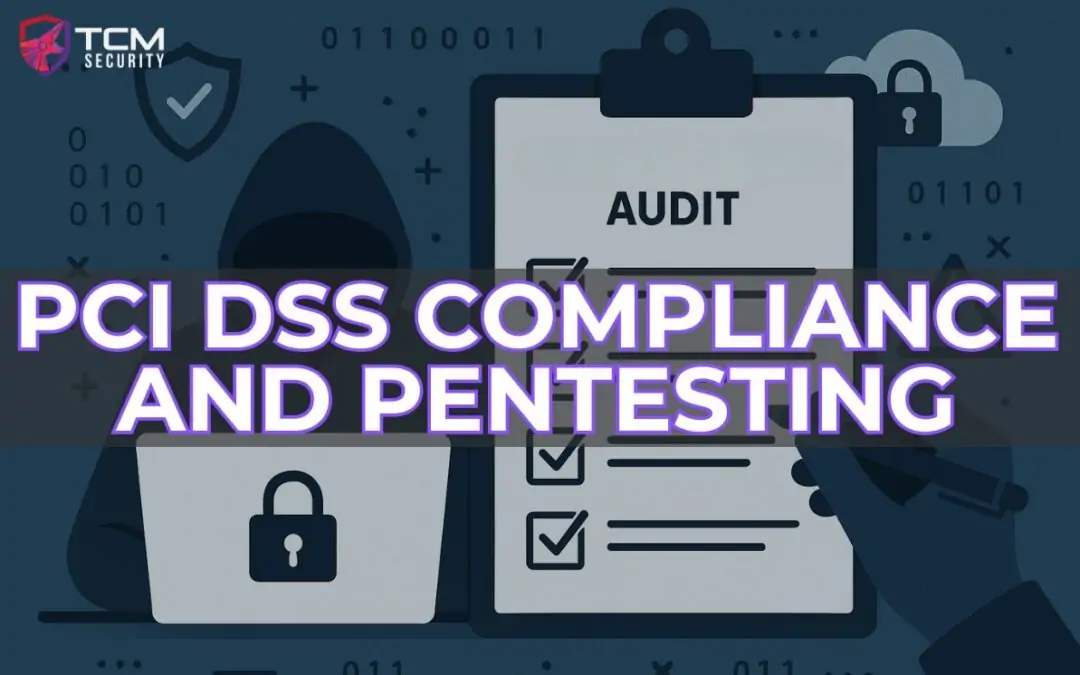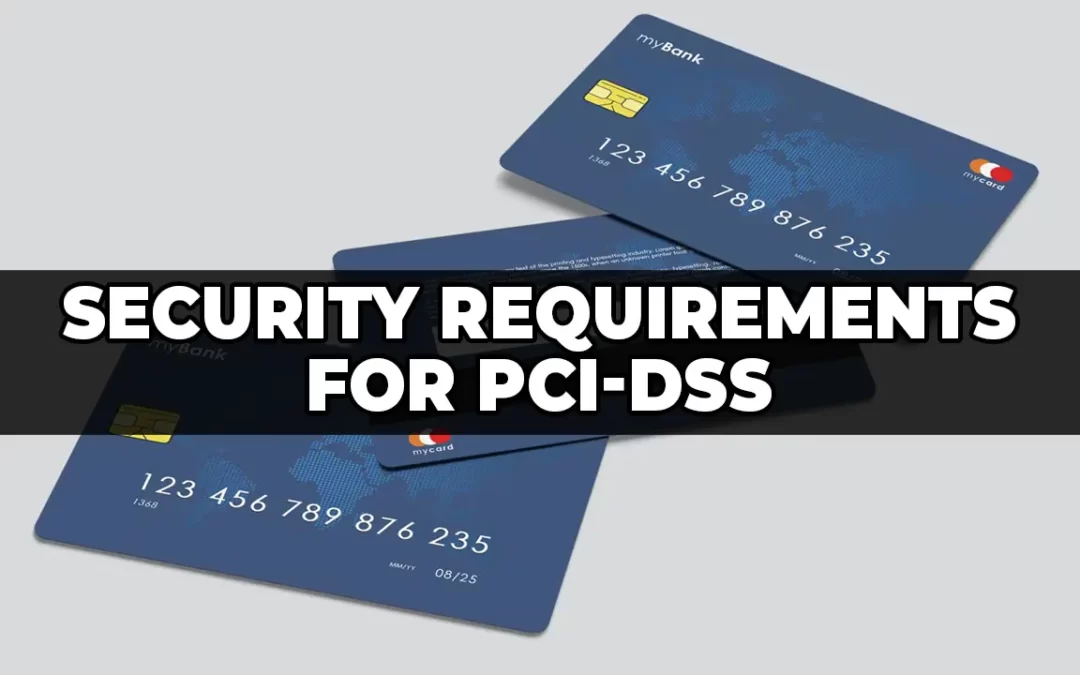One Trusted Partner for PCI DSS Compliance and Security Testing
Our team of QSAs and penetration testers work together to streamline every phase of your PCI audit- from scoping to testing to final reports- saving you time, providing deeper insights, and avoiding back-and-forth between multiple vendors.
PCI DSS QSA Compliance Auditing Services
A PCI DSS audit is an annual requirement for businesses that process credit card data. PCI DSS stands for the Payment Card Industry Data Security Standards, a series of regulations created by the major credit card companies to ensure businesses that process credit card data are taking the proper steps to protect that sensitive financial information.
The requirements vary depending on your company size and the number of transactions processed annually, but the consequences for not complying can be quite severe, including thousands of dollars in fines and penalties and even losing your merchant account. As a result, many organizations choose to have a third-party audit completed by a qualified assessor like TCM Security to ensure that their company is complying with all regulations.
A typical Level 1 PCI DSS Assessment includes:
A dedicated QSA who you can reach anytime through Slack, Teams, or your communication platform of choice.
Proper PCI scoping to reduce costs and complexity
A customized gap analysis and risk assessment
Security policy and procedure review and development (if necessary)
An opportunity for remediation
An onsite (or virtual) visit to validate security measures for the Report of Compliance (RoC)
Security testing options and recommendations
A Report of Compliance (RoC) and Attestation of Compliance (AoC)
Who Needs a PCI DSS Audit?
If your company stores, processes, or transmits credit card information, you are required to follow the Payment Card Industry Data Security Standard (PCI DSS). The exact type of audit required depends on the size of your organization and the number of transactions processed each year.
If you are unsure of what type of PCI audit is required, consider engaging a PCI Qualified Security Assessor (QSA) to help with the process. A QSA is certified by the PCI Security Standards Council and is re-certified every year to ensure they are up to date with the latest changes. Though third-party auditing is not required for every type of PCI audit, partnering with a qualified company like TCM Security can help reduce risk and streamline the process.
Non-compliance with PCI DSS can cost businesses anywhere from $5,000 to $100,000 per month in fines, not to mention reputational damage and potential legal ramifications.
Why Choose TCM Security for PCI DSS Auditing
TCM Security is a veteran-founded cybersecurity company focused on providing top-of-the-line penetration testing, security training, and compliance auditing services. Our background is in training and education, meaning our assessors are well-equipped to translate confusing legal requirements and jargon into easy-to-follow tasks. Our assessors have certifications and credentials including:

Our QSA team collectively has 50+ years of total IT and security experience. They’ve served in CISO and CEO/founder capacities, as well as worked as penetration testers.
With a background in cybersecurity education, they are equipped to work with any audience and ensure they come away from the engagement more educated on PCI and how to move forward.
The team holds several degrees and other certifications including the CISSP, CISM, OSCP, and many more.
TCM Security also provides penetration testing and vulnerability scanning services, so we can support you throughout the entire PCI compliance process.
Why Choose One Provider for PCI DSS Auditing & Penetration Testing
PCI DSS compliance can be a lengthy process. As the standard has evolved over the past twenty years, there has been more of an emphasis on third-party security testing, including quarterly vulnerability scans and annual penetration testing. By partnering with an organization like TCM Security, who provides both security testing and compliance auditing, you can save time, minimize risk, and streamline your path to PCI compliance.
Unlike other audit firms, our QSAs come from penetration testing backgrounds and possess a deep knowledge of exactly how compliance gaps can be exploited by attackers. We go beyond just checking the compliance box, but help you build a stronger defensive wall.
Our QSAs work separately from but closely with our penetration testing team to provide independence and seamless collaboration. Using the same firm for auditing and security testing ensures that the testing results are incorporated into your SAQ or RoC documentation. Not only does this result in better remediation guidance, it can also drastically reduce the need for redundant meetings and miscommunications between teams.
What Can You Expect During a PCI DSS Audit?
TCM Security uses PCI auditing techniques based on industry best practices, such as reducing in-scope testing via network segmentation and implementing PCI DSS into Business-as-Usual processes. In addition, all requirements, testing procedures, and guidance align with Payment Card Industry Security Standards Council instruction, as TCM Security is a PCI-certified organization.
The PCI auditing process differs depending on what you need, but a typical PCI DSS QSA Level 1 audit follows this general path:
Scope Definition
To start, we work with you to define the scope of the audit. We optimize network segmentation and streamline processes to ensure that fewer systems fall under PCI scope which reduces both complexity and cost.
Gap Analysis and Risk Analysis
Our team performs a thorough assessment of your current controls, identifying compliance gaps and providing clear remediation steps tailored to your unique environment. Our background in penetration testing means that we have a deeper understanding of the security risks compared to other auditing firms.
Security Testing
As both a QSA and a penetration testing firm, TCM Security can help you close any gaps in security testing identified in the gap analysis.
Remediation and Retesting
Our QSAs provide you with a detailed report and will work with you to fix areas of non-compliance. You’ll have an opportunity to fix any identified issues before the report is finalized.
On-Site (or Virtual) Visit
The QSA must observe and verify that the correct policies and procedures are in place to ensure that the business is PCI compliant.
Submitting Your Report (ROC) and Attestation of Compliance (AOC)
Receive proof of compliance for regulators as well as clear, concise reports highlighting both compliance successes and areas for improvement, ensuring you have a complete roadmap for maintaining PCI DSS standards.
PCI DSS Compliance FAQs
How much time does a PCI assessment take?
It depends on how well your organization is prepared for the audit and what level of service you require. If your organization is prepared, a Level 1 PCI DSS QSA audit should take about a month, sometimes a few months, depending on client engagement. A Level 2 audit can typically be completed in under two weeks. If it’s your first time going through an audit, you should expect it to take longer.
How can I increase my likelihood of passing my PCI DSS assessment?
There are two keys to passing your audit- documentation and security testing. Doing the work to ensure your security policies and procedures are up to date before the audit begins will help the audit go smoothly. In addition, adopting a security testing schedule and providing evidence of quarterly vulnerability scans and remediations, as well as proof of a penetration test, will prevent headaches and satisfy the requirements.
What is an SAQ for PCI validation?
An SAQ is a Self-Assessment Questionnaire. Some organizations can validate their PCI compliance status by using an SAQ to self-evaluate their compliance with the PCI Data Security Standard. The exact requirements depend on your organization and the number of transactions processed, but most SAQs also require you to submit proof of security testing as well.
Your Title Goes Here
Your content goes here. Edit or remove this text inline or in the module Content settings. You can also style every aspect of this content in the module Design settings and even apply custom CSS to this text in the module Advanced settings.
How much does a PCI assessment cost?
The cost of a PCI DSS compliance audit varies depending on the organization. Some of the factors include:
- The size, location, and nature of the organization.
- The number of annual card-based transactions
- How processed card-based payments are captured (i.e., in-person, via mail order or telephone, or online)
- The services offered, the organization’s role in payment card processing, and the potential to impact the security of account data.
- The complexity of the organization’s network, systems, and security setup that supports the payment card acceptance and/or processing.
Does my payment solution make me PCI compliant?
Not necessarily. PCI compliance goes beyond just the technology used to process payments. It’s about ensuring your business handles payment card data securely in every situation. Whether you process payments online, in person, or through any other method, you are still required to validate compliance. Ultimately, it’s your responsibility to demonstrate that your business meets PCI standards for protecting payment data.
What are the potential costs of not being PCI compliant?
The implications of not being PCI compliant, but still operating and taking credit card payments anyway, go well beyond just checking a box and calling things done. Here are some of the consequences of not being compliant with PCI DSS:
- Monthly fines for noncompliance range from $5k-10k in the first three months, up to $50k-100k after the seventh continuous month.
- Breach fines that apply per affected customer, up to a maximum of $500,000 per incident.
- Significant increases in the transaction fees your business pays to have payment processors handle your business’ transactions.
- Potential lawsuits and associated legal fees from angry customers/institutions.
- Your business’ ability to even process card payments might be affected:
- Banks may terminate your merchant account in severe cases.
- You might be put on the MATCH list (Member Alert to Control High-Risk Merchant), which could make it difficult (or even impossible) for you to get a new merchant account for up to five years.
Additional Resources

PCI DSS Compliance and Pentesting
Learn which organizations need penetration tests for PCI DSS compliance and how consulting with one company for both can streamline the process.

PCI DSS 4.0: What’s New and How Your Business Can Stay Compliant
Learn more about the most recent updates to the PCI DSS, how version 4.0 compares to 3.2.1, and what you need to do to be PCI compliant.

PCI DSS Compliance Checklist: Ensuring Your Business Meets Regulatory Standards
Every business that processes credit card data must comply with PCI DSS regulations. Review the PCI DSS compliance checklist to find out what is required.

Security Testing Requirements for PCI-DSS
Companies handling credit card data must adhere to the Payment Card Industry Data Security Standard. Learn which PCI-DSS requirements require security testing.
Get Our Guide to PCI Compliance
Learn more about the PCI compliance requirements and what your organization needs to do to achieve compliance. This 36 page guide serves as an introduction to the requirements and will help you understand your obligations.
Penetration Testing - PCI Compliance - Auditing
See How We Can Secure Your Assets
Let’s talk about how TCM Security can solve your cybersecurity needs. Give us a call, send us an e-mail, or fill out the contact form below to get started.

